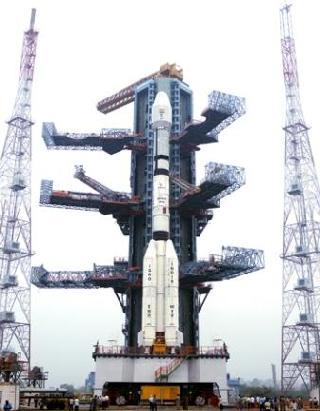
GSLV-F06 on the Launch Pad. An ISRO photo
Bangalore (PTI): ISRO has constituted a committee to probe the unsuccessful GSLV-F06 mission and a panel to look into the future of the GSLV Programme and assured launch of satellites, operationalisation of indigenous cryogenic stage and strategy for meeting communication transponder needs.
ISRO Chairman K Radhakrishnan has formed a Failure Analysis Committee (FAC) to carry out an in-depth analysis of the flight data of GSLV-F06 as well as the data from the previous six flights of GSLV, establish reasons for the flight's failure and recommend corrective actions on the GSLV vehicle including the remaining one Russian Cryogenic Stage.
"The Failure Analysis Committee chaired by former Chairman ISRO Dr G Madhavan Nair has 11 Experts drawn from within ISRO and outside," Bangalore-headquartered Indian Space Research Organisation said in a statement Friday.
The ISRO Chairman has also constituted a Programme Review and Strategy Committee to look into the future of the GSLV Programme and assured launch for INSAT/GSAT Series, INSAT-3D as well as Chandrayaan-2; realisation and operationalisation of indigenous Cryogenic Stage and strategy for meeting the demands of communication transponders in the immediate future.
Dr K Kasturirangan, former Chairman of ISRO and presently Member of the Planning Commission, would be chairing this seven member Committee.
These two Committees have been requested to submit their reports by January-end. Subsequently, the reports of these Committees would be presented to eminent national experts including Dr A P J Abdul Kalam, Prof. M G K Menon, Prof. Yash Pal, Prof. U R Rao, Dr K Kasturirangan, Dr. G Madhavan Nair, Dr R Chidambaram, and Prof. R Narasimha.
Further, a panel chaired by Dr S C Gupta, former member of Space Commission, would be guiding and facilitating an internal exercise by Chairman, ISRO, eliciting views from the ISRO community at all levels to gear up for the complex and challenging space missions ahead.
ISRO said it plans to complete these reviews and internal exercises by February end.
On the failed mission last week, ISRO said the performance of the GSLV-F06 flight of December 25 (with GSAT-5P Satellite onboard) was normal up to 47.5 seconds from lift-off.
The events leading to the failure got initiated at 47.8 seconds after lift-off. Soon, the vehicle started developing larger errors in its orientation leading to build-up of higher angle of attack and higher structural loads and consequently vehicle broke up at 53.8 seconds from lift-off (as seen visually as well as from the Radars).
As per the Range safety norms, a destruct command was issued from the ground at 64 seconds after lift-off. The flight was hence terminated in the regime of the First Stage itself.
Soon after this, the ISRO Chairman constituted a Preliminary Failure Analysis Team under the chairmanship of Madhavan Nair, to conduct a preliminary analysis of the flight data, along with members of the Launch Authorisation Board, and Mission Readiness Review Committee as well as senior Project functionaries of GSLV Project and experts.
The finding of the Preliminary Failure Analysis Team is that the primary cause of the failure is the untimely and inadvertent snapping of a group of 10 connectors located at the bottom portion of the Russian Cryogenic Stage.
Some of these connectors carry command signals from the onboard computer residing in the Equipment Bay (located near the top of the vehicle) to the control electronics of the four L40 Strap-ons of the First Stage.
These connectors are intended to be separated only on issue of a separation command at 292 seconds after lift-off.
The premature snapping of these connectors has led to stoppage of continuous flow of control commands to the First Stage control electronics, consequently leading to loss of control and break-up of the vehicle.
"The exact cause of snapping of the set of connectors, whether due to external forces like vibration, dynamic pressure is to be analysed further and pin-pointed", ISRO said.
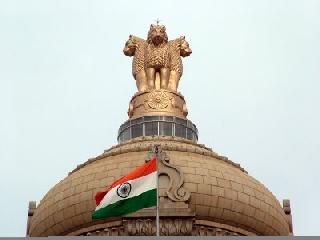 Previous Article
Previous Article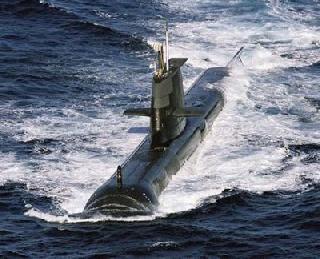 Next Article
Next Article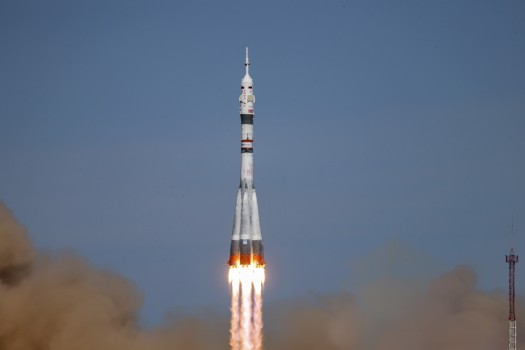

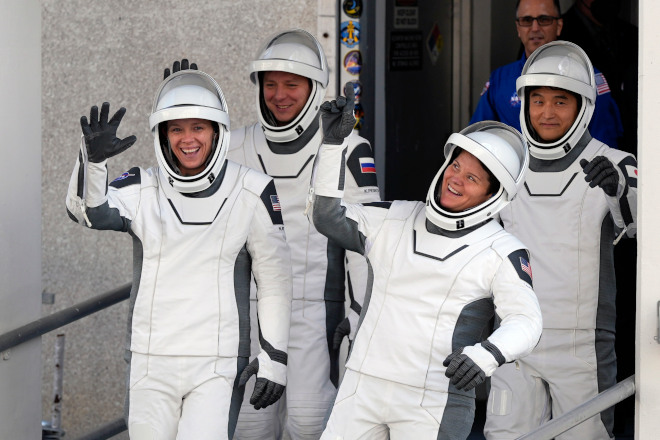











The Indian Air Force, in its flight trials evaluation report submitted before the Defence Ministry l..
view articleAn insight into the Medium Multi-Role Combat Aircraft competition...
view articleSky enthusiasts can now spot the International Space Station (ISS) commanded by Indian-American astr..
view article